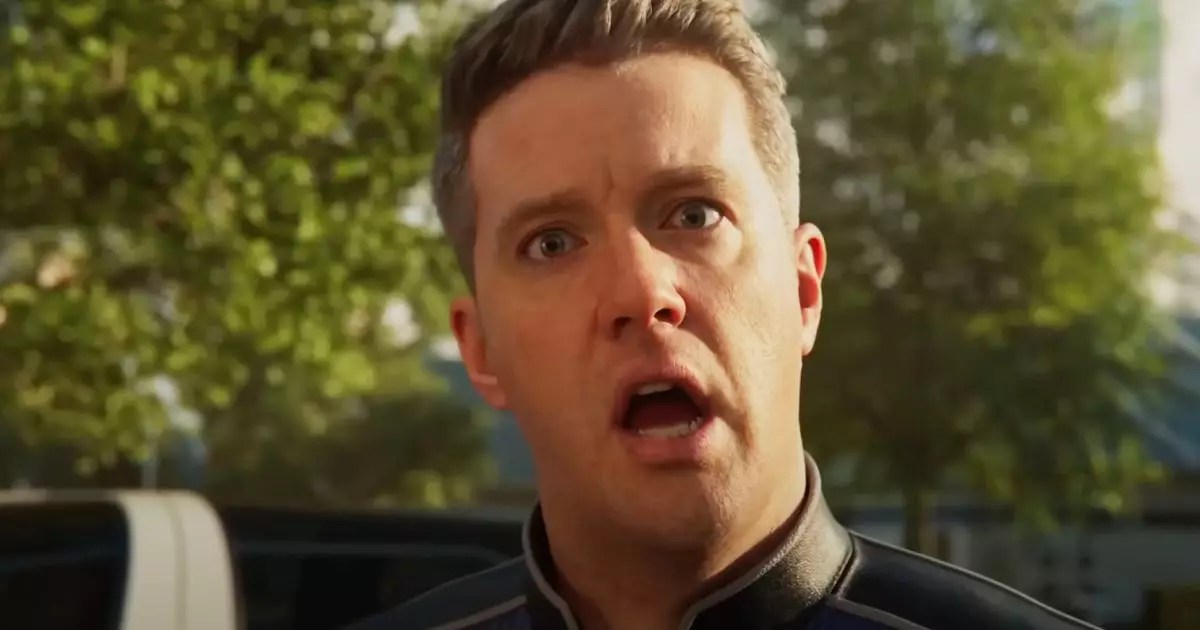Helldivers 2 doesn’t shy away from demanding a higher level of commitment from its community. Instead of soft prompts or casual encouragement, the game’s latest directive is a rallying cry that calls for players to step up, face terrifying foes, and actively contribute to the fictional society’s survival. This unapologetic approach highlights the developer’s belief in the importance of player agency—not just as passive participants but as essential agents of chaos against galactic threats. Such a strategy shifts the typical gaming paradigm, demanding players recognize their capacity to influence the narrative, even if it means indulging in virtual violence. The game’s tone suggests that heroism isn’t about morality but about action—an ethos that many modern gamers find both exhilarating and empowering.
The Narrative of Crisis and Resilience
Helldivers 2 positions its players amid a societal collapse, with the game’s universe depicted as in a state of existential crisis. The media within the game conveys the gravity of the situation—cities are in flames, citizens live in fear, and the very fabric of democracy appears under siege. This narrative device isn’t mere window dressing; it reflects a deliberate attempt by the developers to evoke emotional investment. The game’s storyline seems less about the glorification of violence and more about illustrating the chaos and responsibility that come with defending civilization. It confronts players with the uncomfortable truth that resilience involves decisive, often brutal, action. The choice of language—the mention of “murder-deathing” and “kill millions”—serves as a provocative reminder of the stakes involved, fostering a deep sense of gravity that distinguishes Helldivers 2 from typical shooter fare.
Gamifying Governance and Sacrifice
What’s notably unique about Helldivers 2’s latest order is how it intertwines gameplay with political undercurrents. The creation of “Maximum Security Cities” as strategic hubs echoes real-world notions of fortified zones amidst chaos, but with a satirical edge. Names like Fort Union, Fort Sanctuary, and Emeria hint at a play on military infrastructure, emphasizing the need for security through militarized zones. Furthermore, the emphasis on killing “enemies that arise most frequently in citizen nightmares” showcases the game’s inventive narrative: war as a form of collective psychological therapy. The enormous tally of enemy units to be eliminated—tens of millions—serves as a meta-commentary on the scale of modern conflicts and the often-overwhelming burden placed on those fighting in them. It’s a bold, unapologetic reminder that in the chaos of war, victory is defined not by clean hands but by relentless efforts.
Engagement Through Rewards and Community Recognition
Despite the heavy tone, Helldivers 2’s developers understand that player motivation is complex. The introduction of a free cape, the Ingress-81 design, underscores this balance. Rather than simple gameplay incentives, these rewards are embedded within an engaging lore context: an ARG that honors those who contributed to the Stations-81 recovery effort. It’s a clever way to foster a sense of community and shared purpose. The visual design—a vibrant purple cape with braille patterns—serves as both symbolism and status indicator. It encourages players to participate in side stories and community activities, which enhances overall engagement. This approach demonstrates that even in a universe driven by destruction and chaos, communal recognition and symbolic tokens foster loyalty, turning players into active collaborators in the ongoing saga.
The Broader Reflection: Games as Mirrors of Society’s Struggles
Helldivers 2 exemplifies a broader trend in gaming: using gameplay as a mirror to societal issues. Its tone—a mixture of satire, seriousness, and propaganda—mirrors contemporary concerns about misinformation, societal division, and militarization. The game’s overt depiction of a society on the brink, and players’ role within it, invites reflection on real-world parallels. Is this an escapist fantasy, or a subtle critique? Perhaps both. What’s certain is that by framing their cosmic conflict in such visceral terms, the developers reinforce the idea that engagement, action, and collective effort are essential—no matter the universe. It suggests that, for society’s problems, silence and complacency are deadly, while active participation, even in violent forms, might be the only way to restore order.
In the end, Helldivers 2’s latest directives are more than just game mechanics; they are a declaration that heroism, sacrifice, and engagement are core to navigating chaos—whether on a galactic scale or within our own lives. This game boldly positions players as vital participants in shaping their universe, making their every action a statement of resilience in times of turmoil.


Leave a Reply